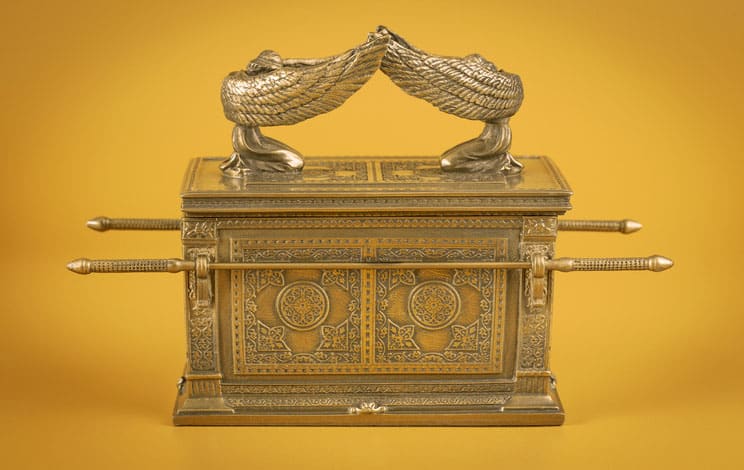 pamela_d_mcadams/Getty Images
pamela_d_mcadams/Getty Images Charisma is a gift of self-projection
to perfect strangers, in a way
that obviates what may be their objection
to problematic things we say.
Moses, David, Solomon possessed it, and
a lot of other heroes in the Bible too.
It is a charm we from our leaders may demand,
but blooms, unfortunately, only in a few.
Preciously once present were the charismatic goods
from which the tabernacle in the wilderness was made
with polished gold and silver, bronze, and rare, exotic woods,
the model for the temple where Judeans sang and prayed.
However great was then charisma of the holy building
Jews built first in the wilderness to house the Ark and then in
Jerusalem, these buildings should be seen as merely gilding
the lily of God’s presence it contained in them, within.
Alas, the centerpiece, the holy ark, was lost,
together with the broken tablets Moses smashed;
we Jews are its survivors; rolling stones unmossed,
God’s charismatic relics all, who won’t be trashed.
‘A rolling stone gathers no moss’: English proverb originally Latin.
Exod. 25:8 states:
וְעָ֥שׂוּ לִ֖י מִקְדָּ֑שׁ וְשָׁכַנְתִּ֖י בְּתוֹכָֽם׃
And let them make Me a sanctuary that I may dwell among them.
Bava Batra 14b states:
The verses state: “At that time the Lord said to me: Hew for yourself two tablets of stone like the first…and I will write on the tablets the words that were on the first tablets, which you broke, and you shall put them in the Ark” (Deuteronomy 10:1–2). This teaches that both the second set of tablets and the broken pieces of the first set of tablets were placed in the Ark.
In “Charged Wonders,” NYR, 2/8/24, Peter Brown, reviewing an exhibition, “Africa and Byzantium,” at the Metropolitan Museum of Art, New York City, November 19, 2023–March 3, 2024; and the Cleveland Museum of Art, April 14–July 21, 2024), writes:
Charismatic goods were privileged goods. They bore with them a charge of life-enhancing energy, delight, and majesty that appeared to have been brought from the ends of the earth. They were supposed to transform their owners, touching them with a speck of glory that raised them above the humdrum routines of daily life and the ordinary exchange of goods.
|
|
Gershon Hepner is a poet who has written over 25,000 poems on subjects ranging from music to literature, politics to Torah. He grew up in England and moved to Los Angeles in 1976. Using his varied interests and experiences, he has authored dozens of papers in medical and academic journals, and authored “Legal Friction: Law, Narrative, and Identity Politics in Biblical Israel.” He can be reached at gershonhepner@gmail.com.























 More news and opinions than at a Shabbat dinner, right in your inbox.
More news and opinions than at a Shabbat dinner, right in your inbox.